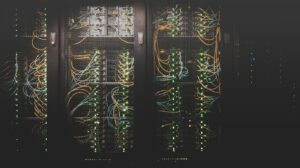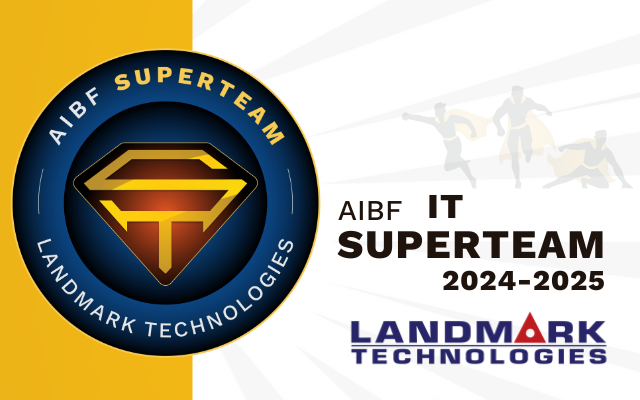A Business’ Cheat Sheet to Cloud Computing Acronyms
There’s no denying that cloud computing is taking over the business world. According to Right Scale’s annual State of the Cloud Report for 2019, 90% of companies are on the cloud, furthermore by 2020 83% of enterprise workloads will be in the cloud by 2020. However, the growth of “The Cloud” brings with it a new and complex appendix. While cloud computing is essential for businesses of every size, it can be difficult for professionals outside of the IT industry to keep up with its various terms and acronyms. To ensure that you can knowledgeably and accurately apply cloud computing services to your organisation, we’ve put together “Your Cheat Sheet to Cloud Computing Acronyms.
To learn more about how we can help you on your journey to the Cloud, click here.
The Cloud Essentials
Cloud Computing:
Cloud computing is the practice of using remote networks or servers, which are hosted on the Internet, to store, access and manage data. Essentially, this means that you are saving your data to a platform that can be accessed from any digital device in any location, rather than saving it to a single computer or local server. The three main cloud computing solutions are, Software as a Service (SaaS), Infrastructure as a Service (IaaS) and Platform as a Service (PaaS). These terms will be explained in more detail further down in the article.
Cloud Management Platform (CMP):
This is a product or tool that allows you to manage public, private and hybrid cloud environments. CMPs help you control the applications and functionality of your various cloud servers.
Cloud Service Provider (CSP):
This is a third-party company that offers cloud computing services, such as platforms, infrastructures, applications and storage, to individuals and businesses. Depending on your business model, CSPs will provide you with various cloud solutions, such as SaaS, IaaS and PaaS.
Types of cloud services
Software as a Service (SaaS):
This solution provides software applications that are hosted on the cloud by service providers. Typically, you can use these applications on a subscription or rental basis, and they are available to you online. SaaS solutions are especially popular because they can be accessed anywhere, at any time and on any device, and you can use them to store any type of data or document. An example is Microsoft’s Office 365, which provides Microsoft software such as Word and Excel as a cloud-based service, so your documents can all be saved in the cloud.
Infrastructure as a Service (IaaS):
This solution provides cloud computing infrastructure, such as servers and data storage, through virtualised hosting services. This means that you can outsource the responsibilities of an IT department to a single service provider that owns, operates and maintains your technical resources. For a subscription or rental cost, an IaaS solution gives you access to all of the hardware that is essential to keep your business running smoothly.
Platform as a Service (PaaS):
This solution provides the applications, tools and supporting infrastructure that are necessary for users to create their own software. This is especially useful if you are an app developer or a coder, but its support can help any business throughout the entire web application lifecycle. With PaaS, you can rent hardware, network capacity, operating systems and storage from a service provider on a pay-as-you-go basis that is accessible over a secure Internet connection. It is usually used in combination with SaaS or IaaS solutions.
Desktop as a Service (DaaS):
This solution provides a workspace–a desktop operating system–that is hosted by a third-party service provider and can be accessed from any device. DaaS is useful if your employees use their own devices for work because all of the data from their desktops are securely located in the cloud, rather than on one local computer. These virtual desktops keep important information secure and centralised for a pay-as-you-go cost.
Virtualisation
Virtual Machine (VM):
This is a computer software that runs its own applications and operating system. It provides the functionality of a physical computer, while only existing as a single file on your desktop. Multiple VMs can run on a single computer, and they each provide their own virtual hardware, such as network interfaces and hard drives.
Virtual Desktop Infrastructure (VDI):
Similar to DaaS, VDI is the practice of hosting a desktop operating system within a virtual machine that exists on a centralised server. Your employees can access these virtual desktops from any of their existing devices, and they make it so that you don’t have to invest in localised office computers. However, instead of storing desktop data on the cloud, VDI keeps information on a remote centralised platform in a data center.
Virtual Private Cloud (VPC):
As opposed to a public cloud, a VPC is only available to specific users that have the necessary authentication to access it. This way, you can store and manage your data on a more secure virtual platform within your server’s public cloud. A VPC also gives you the flexibility to control how your information is connected and accessed across different regions or teams.
Virtual Data Room (VDR)
Is another place where you can store sensitive company data, such as financial information, legal documents, tax paperwork and copyrighted works. These virtual rooms act as online databases, making it easy for employees to store and share sensitive information during significant business objectives, such as mergers and transactions.
Virtual Private Network (VPN)
Creates a safe and encrypted connection for employees who may be using personal devices or public WiFi. This will keep your company information secure even if your employees are working remotely or travelling for business by providing them with a connection they can trust.
Bring Your Own
Bring Your Own Cloud (BYOC):
As cloud-based services become more accessible, more employees are using them to complete certain tasks without company-wide adoption of the service. For example, your employees may use DropBox to share files, or MailChimp to assist with email marketing, even if these services aren’t provided to them by your company. However, you should be aware of the security risk for storing company data on public or private third-party cloud services that are not controlled by your organisation. To learn more about how to train your employees about cyber security, click here.
Bring Your Own Device (BYOD):
Similar to BYOC, this is a policy that allows employees to use their personal devices to access company information and applications. Because cloud-based services allow your data to be accessed anywhere, your employees can easily work remotely or bring their own laptops to the office without falling behind or missing out on necessary systems. However, there is also a security risk for this policy, as employees can connect to unsecured WiFi connections and get hacked without proper software in place.
According to the 2018 IDG Cloud Computing study, 73% of organisations have at least one application already in the cloud. The best way to keep up is to understand the basics of cloud computing and the acronyms associated with it. This way, you will know whether you want to implement PaaS in the coming year, or opt for VDI instead.
Landmark offers comprehensive network security consulting and auditing services. We offer a bespoke layered approach to cyber security, addressing every security need for every size of business. Contact us now.
Hungry for knowledge, what are you waiting for? Sign up today
[email-subscribers-form id=”1″]











